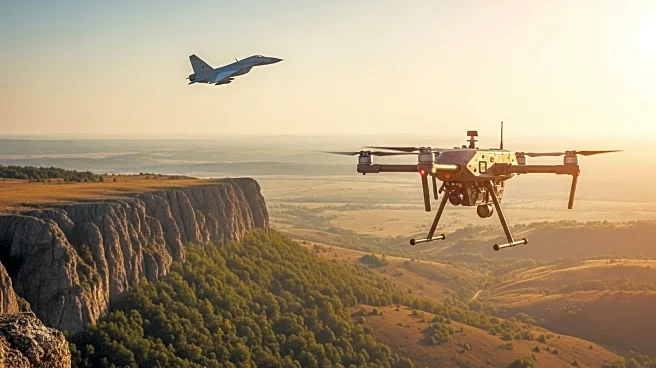What is the story about?
What's Happening?
NATO's military chief, General Alexus Grynkewich, has encouraged defense contractors to test their technology in real-world situations against peer adversaries, specifically in Ukraine. Speaking to an industry group in Washington, D.C., Grynkewich highlighted the importance of attending the upcoming Defense Tech Valley conference in Ukraine. This event is seen as an opportunity for companies to understand the modern battlefield and future needs. NATO allies across Europe are increasing their defense budgets to meet new spending pledges, with much of the procurement directed towards Ukraine. The NATO Prioritised Ukraine Requirements List (PURL) initiative has already attracted over $2 billion in pledges, with expectations for more. Grynkewich emphasized the role of European Command in coordinating Ukraine's requests with U.S. and European inventories, noting that some equipment, like PAC-3 missiles, will come exclusively from U.S. factories.
Why It's Important?
The initiative to test defense technology in Ukraine is significant as it provides companies with insights into modern warfare and future defense needs. This move is crucial for the U.S. defense industry, as increased European defense spending will likely benefit American companies through the PURL initiative. The collaboration between NATO allies and Ukraine could lead to advancements in defense technology and strategy, influencing global arms development. Companies that engage in real-world testing and partnerships may gain a competitive edge in the rapidly growing defense market, particularly in Europe. The focus on Ukraine's requirements also highlights the strategic importance of supporting Ukraine in its defense efforts against Russian aggression.
What's Next?
The Defense Tech Valley conference in Ukraine will serve as a platform for defense companies to showcase their products and form partnerships. As NATO allies continue to raise their defense budgets, more pledges are expected to flow into the PURL initiative, potentially increasing U.S. involvement in supplying advanced defense systems. The feedback from Ukraine's fighters will likely influence future decisions on weapons development and stockpiling, impacting both U.S. and European defense strategies. Companies are encouraged to find partners with expertise and engage in real-world testing to prepare for future conflicts, including potential challenges in the Indo-Pacific region.
Beyond the Headlines
The emphasis on testing defense technology in Ukraine raises ethical considerations about the commercialization of warfare and the impact on local populations. The collaboration between NATO and Ukraine could lead to long-term shifts in defense policies and alliances, potentially affecting global security dynamics. The initiative also underscores the importance of innovation in defense technology, which may drive advancements in areas like drone warfare and air-defense systems.
















